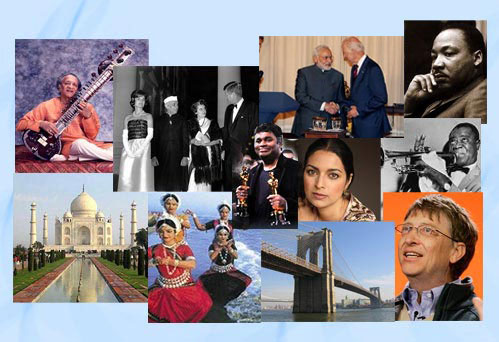 |
 |
 |
|
|
| Press Release |
| Monday, March 26, 2012 |
| Relevance of Vivekanand’s Thoughts in the 21st Century |
On the occasion of the forthcoming 150th birth anniversary of Swami Vivekanand, philosopher, thinker, educationist, social reformer and nationalist par excellence, the IAFA organized a panel discussion on; Relevance of Vivekanand’s Thoughts in the 21st Century on Feb 14th 2012 at multipurpose hall of the IIC. Though Km Selja, Minister of Culture, Housing & Urban Poverty Alleviation had consented to be the Chief, she could not make it at the last minute owing to the hospitalization of her octogenarian mother. The distinguished Panel comprised of Dr Ashok Vajpeyi, Prof Radha Kumar, Shri SP Bagla,Prof Binod Khadria, Mrs Arvind G Singh, Dr Oscar Pujol & Mark Templer. Renowned exponent of Bharatanatyam & Odissi, Dr Sonal Mansingh couldn’t make it on account of her illness. Ms, Nehha Bhatnagar, Joint Secretary of IAFA and a promising dancer in her own right was the Emcee for the evening. Ambassador Surendra Kumar, IAFA’s Founding President welcomed guests and underlined how Vivekanand was a multifaceted personality far ahead of his time who raised the stature of Hinduism to a world religion and acted as a bridge between the Eastern & Western Cultures. He felt that Swami’s forceful plea for the right education; inculcating discipline, integrity and higher moral & ethical values, emancipation of the poor, scientific, technical training and improvement of village industries, creation of inclusive society, service of the common men and pride in the rich cultural heritage & secular traditions of India was as relevant today as during his time. Shri S.P Bagla praised IAFA’s efforts of organizing two important seminars- on Tagore and Vivekananda and referred to one of the sessions of Swamiji in London (London Season Club?) at which he had spoken of Vedanta and privilege and the differentiation between the two. Being an administrator, Mr Bagla spoke of the current challenges in socio-political field: corruption and conflict between privileged and underprivileged. He stressed on Swamiji’s views on spirituality to correct these differences. Mark Templer of the American Embassy spoke highly of Swamiji’s influence in the Western world. What was fascinating was Templer’s ease of switch of languages between impeccable Hindi and English! His favorite quote of Swami Vivekananda was that ‘in a day when you do not come across any problems, you can be assured you are on the wrong path.’ He lauded Swamiji’s penchant for travel in those days and his values of heart, harmony, help, unity, tolerance & respect of all religions. Professor Radha Kumar acknowledged that views expressed by her owed a lot to her academic colleague Gangeya Mukhopadhyaya. She emphasized the fact that science and technology are knitting people together and old demarcations are getting breached. India should be a land of open doors and that the only reason why there is diabolical hatred is due to differences paddled in the name of religions and resort to violence in the name of one’s faith .In this area, we must learn from Swamiji. His core philosophy of universality of faiths, his idea of ‘strong man’, advaita and adherence to truth in politics must be read and studied, she said. Smt. Arvind G Singh Singh, the Joint Secretary of the Ministry of Culture who was representing the Minister of Culture spoke at length about various teachings of Swamiji. In his 39 and half years of life, he taught much, be it the religion as a hope for all of us or as a science of consciousness, she pointed out. Dr. Oscar Pujol quoted the opening statement of Vivekananda’s address at the Parliament of Religions in Chicago in 1893: ‘sisters and brother’ that provoked a standing ovation- as a landmark achievement. The fact that he placed the word sister before brother showed progressive thinking! He complimented America for its plurality as Vivekanand had done then and warned against dangers of gross materialism and conflicts and disharmony resulting from differences highlighted by the practitioners of various faiths. |
| Copyright © 2011 Indo-American Friendship Association, New Delhi chapter. All rights reserved. |
| Maintained by Communications Advisor: Jasmeet Pal Singh |
